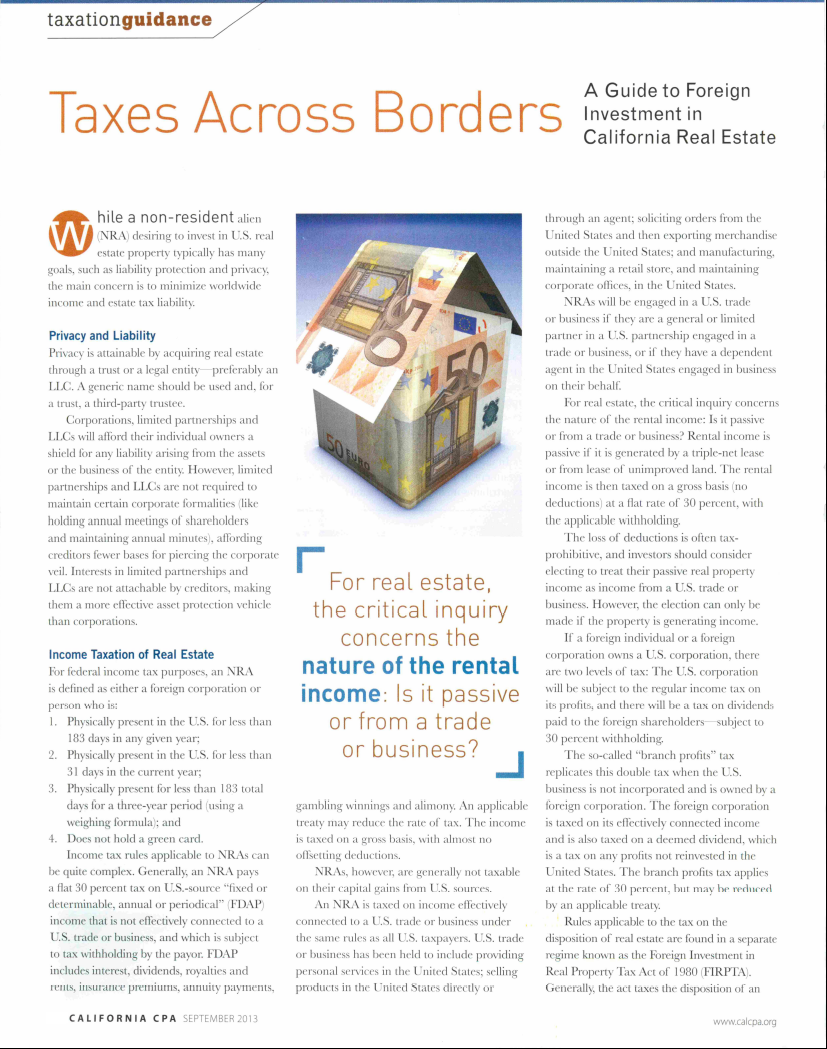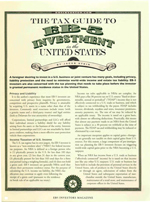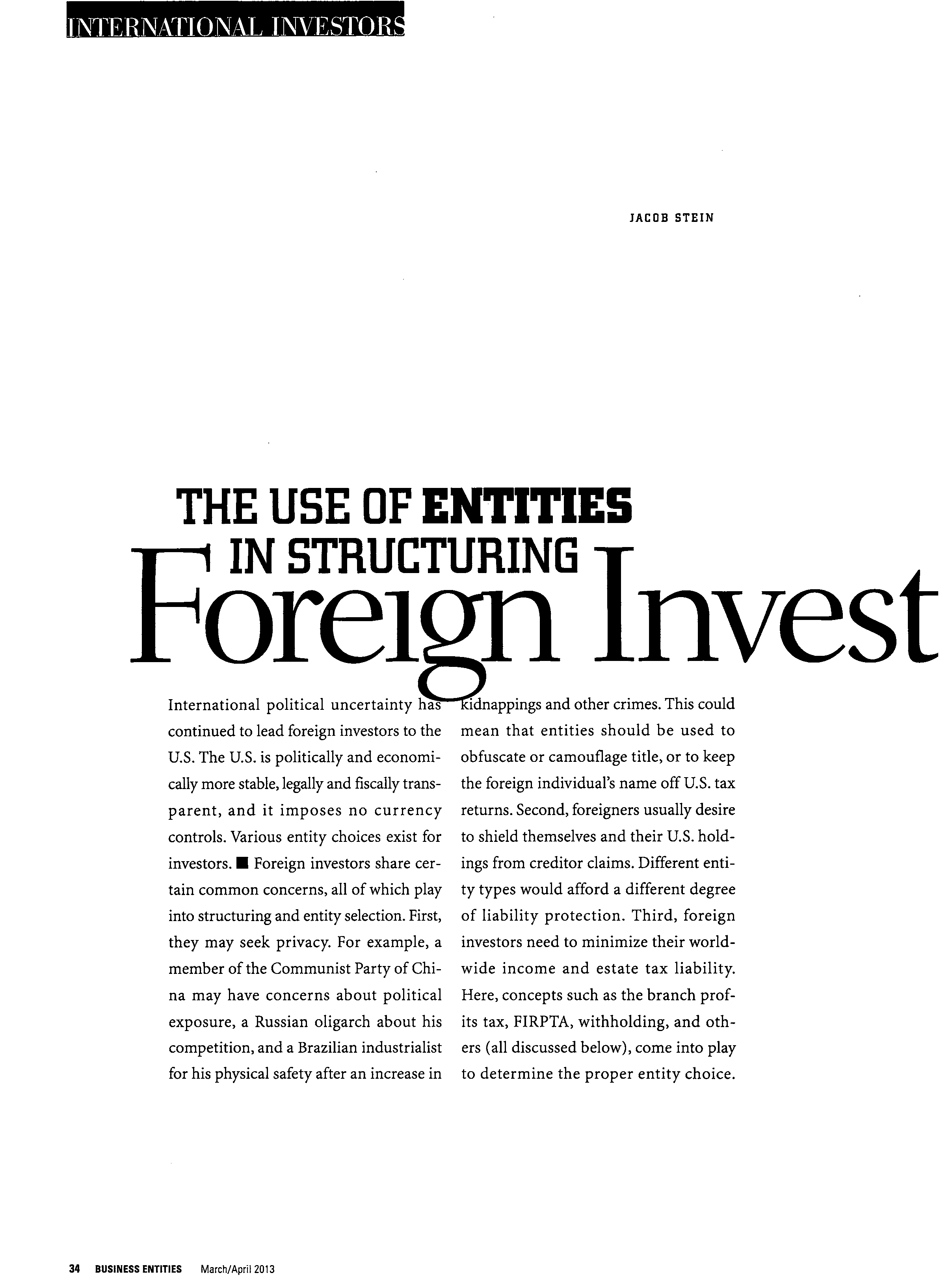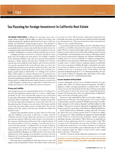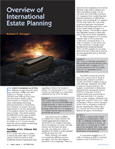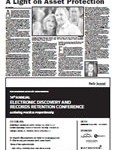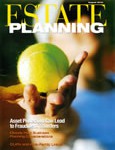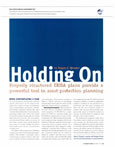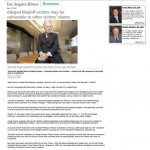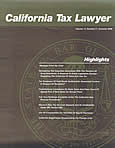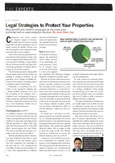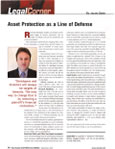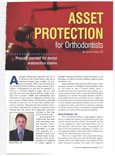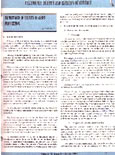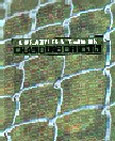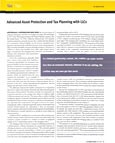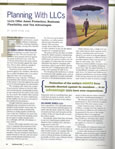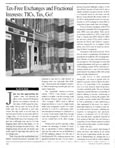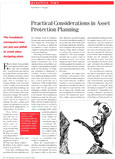Publications
Articles
Articles published by Jacob Stein and Bob Klueger.
Is Nevada a Good Bet for Asset Protection?
When it comes to protecting assets from creditors, state laws determine whether debtors remain safe from creditors. Florida and Texas have some of the more debtor-friendly state laws, however, with the introduction of N.R.S. 86.401.2(a) in 2011, Nevada became the most debtor-friendly state in the United States.
AP Newsletter Article -Is Nevada a Good Bet for Asset Protection
Taxes Across Borders
A Guide to Foreign Investment in California Real Estate
by Jacob Stein
California CPA Magazine, September 2013
While a non-resident alien (NRA) desiring to invest in US. real estate property typically has many goals, such as liability protection and privacy,the main concern is to minimize worldwide income and estate tax liability.
The Tax Guide to EB-5 Investment in the United States
by Jacob Stein
EB5 Investors Magazine, October 2013
A foreigner desiring to invest in a U.S. business or joint venture has many goals, including privacy, liability protection and the need to minimize world-wide income and estate tax liability. EB-5 investors are also concerned with the tax planning that needs to take place before the investor is granted permanent residence status in the United States.
Test
test
The Use of Entities in Structuring Foreign Investment
Business Entities, March/April 2013
International political uncertainty has continued to lead foreign investors to the U.S. The U.S. is politically and economically more stable, legally and fiscally transparent, and it imposes no currency controls. Various entity choices exist for investors.
Finally, Cliff Deal Provides Some Finality in Estate Planning
LA Daily Journal, January 2013
On Jan. 1, 2013, Congress enacted the American Taxpayer Relief Act of 2012, the law that averted us all going over the “fiscal cliff.” The act ended a tortuous road that the estate tax and gift tax have followed for more than a decade.
Tax Planning for Foreign Investment in California Real Estate
LA Lawyer, January 2013
THE RECENT CONFLUENCE of falling U.S. real estate prices and a weaker dollar, together with the flight of capital from Russia and China, has produced a significant demand for real estate in California, Florida, and Manhattan among foreign investors. This demand is fueled by the global perception that the United States is politically and economically stable (or at least more stable than the alternatives), has a transparent legal system that makes it easy for foreigners to invest in real estate and imposes no currency controls, making it easy to divest.
Expand Choices by Creatively Unwinding Irrevocable Trusts
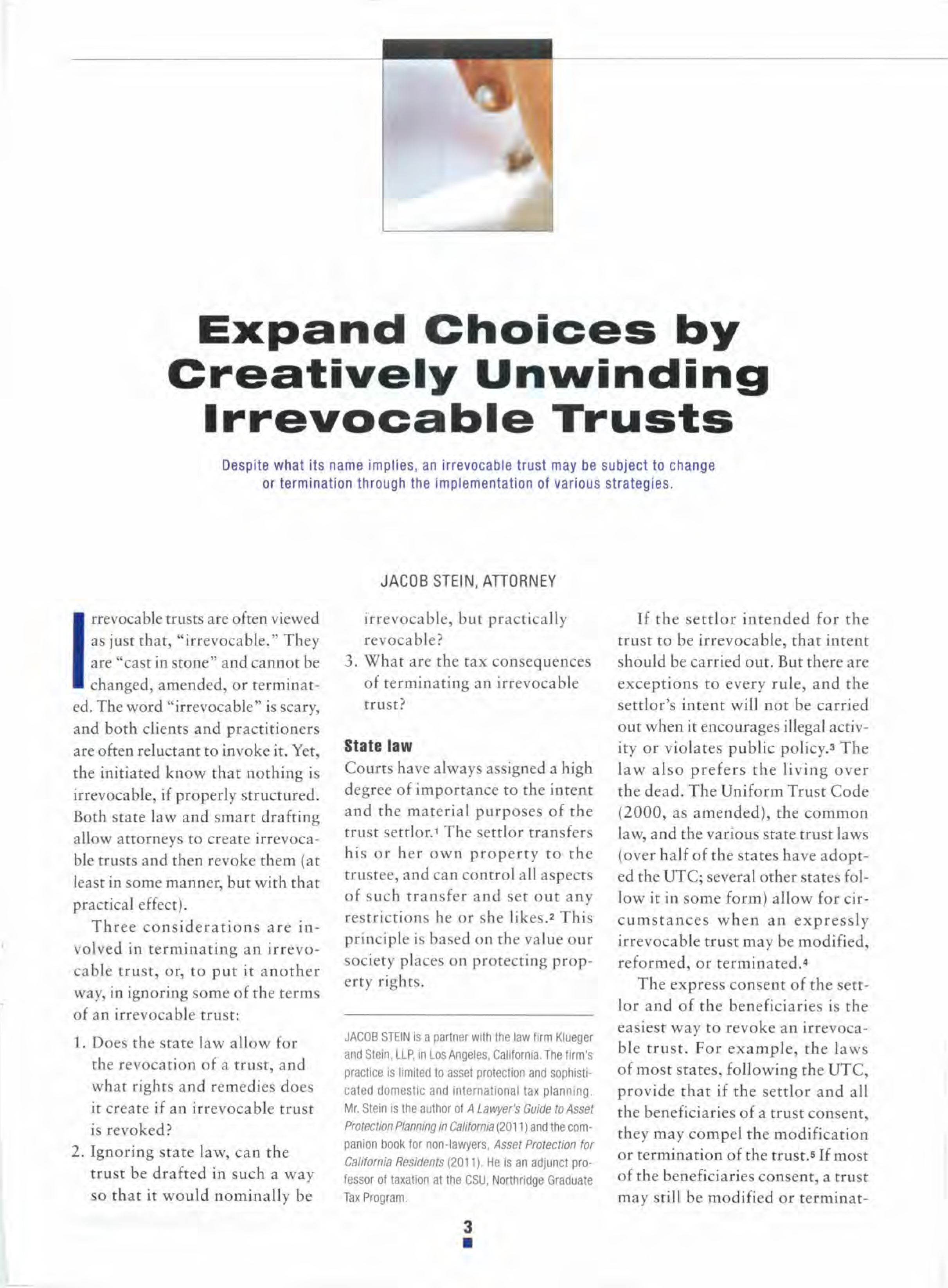 by Jacob Stein
by Jacob Stein
Estate Planning, December 2012
Despite what its name implies, an irrevocable trust may be subject to change or termination through the implementation of various strategies.
Overview of International Estate Planning
Valley Lawyer, October 2012
ESTATE PLANNING IS OFTEN difficult enough when the client was born, resides and owns property in Tarzana. It can be infinitely more difficult if the client was born and/or resides and/or owns property in Tanzania. If the client contemplates relocating, either permanently or temporarily, from Tanzania to Tarzana, there are opportunities to be had, and pitfalls to be avoided—before the client’s tax status changes. This article explores the differences in the ways in which U.S. citizens, U.S. resident aliens (RAs) and non-resident aliens (NRAs) are subject to U.S. income tax and estate tax, and the estate tax planning opportunities for NRAs.
Jacob Stein Published in The Daily Journal
The Emotional Consequences of Asset Protection
This year has been an emotional rollercoaster for our clients. As asset protection attorneys, we represent a great many people facing financial adversity. Our clients often come to us in a very depressed and disturbed state of mind. It is hard not to get emotionally involved in their problems…
Jacob Stein Interviewed by Robb Report
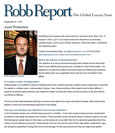 RobbReport.com, September 2010
RobbReport.com, September 2010
RobbReport.com speaks with asset protection specialist Jacob Stein, Esq. of Klueger & Stein, LLP in Los Angeles about the importance of protecting valuable assets, such as your private residence, rental real estate, investments and retirement plans.
McCourt Divorce Shines A Light on Asset Protection
Los Angeles Daily Journal, September 2010
Asset protection has significantly gained in prominence over the past few years. The declining fortunes of real estate developers and investors facing personal guarantee calls, coupled with business owners teetering on the verge of bankruptcy, resulted in a boom for this industry.
Asset Protection May Risk Fraudulent Transfer Violations
Estate Planning, August 2010
Last-minute asset protection planning can frequently run afoul of the fraudulent transfer laws. This article will help advisors determine when a transfer may be “fraudulent” and what would be the likely consequences of such a transfer to the client and to the attorney.
Holding On – Properly structured ERISA plans provide a powerful tool in asset protection planning
Los Angeles Lawyer, December 2009
When contemplating a plan for asset protection, practitioners and their clients often focus on the most exotic approaches, such as foreign and domestic trusts, transmutation agreements, and limited liability companies. Indeed, they often overlook the fundamentals of asset protection, including exempt assets-those that cannot be seized by creditors because they are exempt under federal or state law. Any asset protection plan should begin with an inventory of the client’s exempt assets, which should in turn lead to an inquiry whether the client’s nonexempt assets can be converted into exempt assets.
Alleged Madoff Victims May be Vulnerable to Other Victims’ Claims
Los Angeles Times, February 2009
When contemplating a plan for asset protection, practitioners and their clients often focus on the most exotic approaches, such as foreign and domestic trusts, transmutation agreements, and limited liability companies. Indeed, they often overlook the fundamentals of asset protection, including exempt assets-those that cannot be seized by creditors because they are exempt under federal or state law. Any asset protection plan should begin with an inventory of the client’s exempt assets, which should in turn lead to an inquiry whether the client’s nonexempt assets can be converted into exempt assets.
Tilting at Windmills
Business Entities, May/June 2008
California’s Treatment of A Foreign Jurisdiction’s Series LLCs.
California Registration Requirements for Foreign LLCs
California Tax Lawyer, Summer 2008
The question of California registration comes up often when foreign limited liability companies are used as holding companies for California legal entities, or own passive assets in California like bank accounts and non-income producing real estate.
Legal Strategies to Protect Your Properties
Real Estate Investor, October 2007
Most plaintiffs and creditors simply give up the chase when confronted with an asset protection structure.
Asset Protection as a Line of Defense
Real Estate Southern California, September 2007
Developers and investors will always be targets of lawsuits. The only way to change that is by removing a plaintiff’s financial motivation.
Asset Protection for Orthodontists
OrthodontlcProductsOnline.com, April/May 2007
Although orthodontists represent only 7% of all dentists in the United States, they face a disproportionately large number of malpractice lawsuits. This is true for anyone in the medical field who performs a large number of procedures.
Asset Protection for Doctors
Plastic Surgery Products Magazine, February 2007
This article provides a comprehensive overview of asset protection for doctors. It focuses on the most practical asset protection strategies and examines the most commonly used structures. For each asset type, different alternatives are discussed and compared.
The Importance of Trusts in Asset Protection
California Trusts and Estates Quarterly, Winter 2007
In this well-received article, Jacob Stein examines the crucial role that trusts play in asset protection and advises on how trusts should be drafted to maximize their asset protection effectiveness. The article also includes a thorough examination of foreign trusts and recent cases in that arena.
A Practical Take on Charging Orders
RIA, Business Entities Magazine, September/October 2006
One of the most comprehensive articles ever written on charging orders. The article examines charging order history, variances in state laws, uniform laws and various concerns.
Advanced Asset Protection and Tax Planning with LLCs
Los Angeles Lawyer, June 2006
In this exhaustive article, Jacob Stein examines such issues as LLC charging orders, series LLCs, foreign LLC structures, drafting issues and tax planning concerns. This article is an exhaustive reference on many LLC issues.
Planning With LLCs
California CPA, August 2005
From the time limited liability companies came into prominence, practitioners have been working to maximize their asset protection, business flexibility and tax advantages, among other benefits.
Tax-Free Exchanges and Fractional Interests: TICs, Tax, Go!
Orange County Lawyer, August 2003
Jack was fast approaching his “golden” years, and following the advice of his attorney/CPA/financial planner was looking to diversify his only asset, a 30,000 square-foot shopping center. Having made his living off real estate, Jack was not interested in pork belly futures, blue-chip stocks or aircraft leases; hewas looking to diversify into real estate.
Practical Considerations in Asset Protection Planning
Los Angeles Lawyer Magazine, July/August 2003
This article provides an extensive overview of commonly used asset protection techniques and common obstacles facing the asset protection attorney, including fraudulent conveyance laws.

